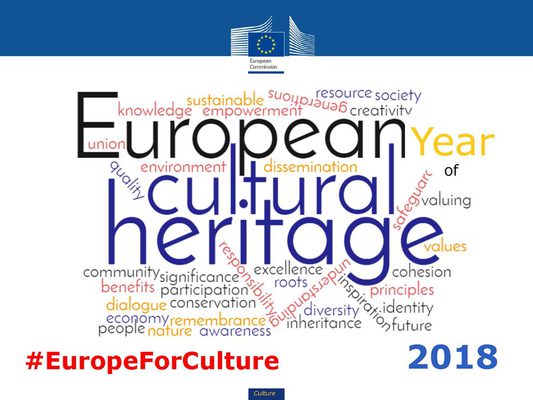Year 2018 has been acclaimed the European Year of Cultural Heritage. The aim of this year is to encourage more people to discover and engage with Europe's cultural heritage, and to reinforce a sense of belonging to a common European space. The slogan for the year is: Our heritage: where the past meets the future. We, partners of the project, desire to make it the main theme of our cooperation.
Cultural heritage has a universal value for us: individuals, communities and societies. In our project we will search for expressive ways to celebrate and preserve it. Such a subject is vital for the six European partners because they encounter similar obstacles while educating their students. Pupils lack motivation to gaining knowledge in history, art and culture. They question traditional authorities and cease to follow the role models. They overuse social media and new technologies. Thanks to participation in the project on cultural heritage the subjects, neglected now, will be made relevant and meaningful for students. This experience will boost learning process and internal development. Moreover, pupils will have a real life need to use foreign languages, especially English, a main of the project. Additionally, each partner country faces international diversity case and suffers from the issues with tolerance, inclusion, and immigration. This project poses an answer to these obstacles. It will help in creating internationally conscious citizens of Europe - well educated in terms of not only academic school knowledge but also culture, history, tolerance and languages what is important in today's Europe.
By this project we can start to introduce the changes in our closest vicinity, causing substantial impact for the future. By our cultural heritage, we can discover our diversity and start an intercultural conversation about what we have in common. Remembering about the issues of immigration and social inclusion which we face in contemporary Europe. We must make sure to get the youth involved in the journey through the past experiences of their countries, making it meaningful for them and linking to the present situation in their countries and societies.
The direct result is to make our students more aware of the cultural diversity that exists in Europe and raise awareness about the similarities that we all have. We all share plenty of things that make us equals. All our cultures have gone through periods of struggle, wars, immigration, emmigration, poverty or wealth and learning about them, our students will become more open-minded, tolerant, and knowledgeable, which will make them better citizens in the future.
